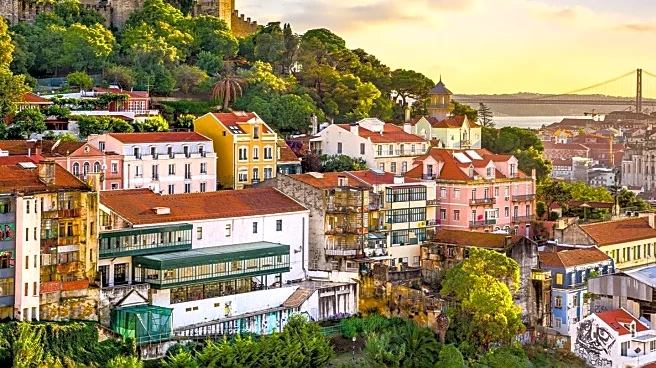What's Happening?
A tragic accident involving Lisbon's Elevador da Glória funicular resulted in 16 fatalities and 20 injuries, with five individuals remaining in critical condition. The incident occurred when a cable connecting two carriages reportedly disconnected, causing one carriage to derail and crash into a building. Despite the funicular's maintenance plan being up to date, investigations are ongoing to determine the cause. The tragedy has sparked discussions about Lisbon's infrastructure challenges, exacerbated by the city's focus on tourism and real estate development. The funicular, a popular tourist attraction, has been temporarily shut down as a precaution.
Why It's Important?
The accident underscores the tension between preserving historical infrastructure and accommodating the demands of modern tourism. Lisbon's reliance on tourism and real estate investment has led to increased pressure on its infrastructure, raising concerns about safety and maintenance. The tragedy highlights the need for cities to balance economic growth with the well-being of residents and the preservation of historical sites. The incident may prompt a reevaluation of maintenance practices and investment priorities in Lisbon and similar cities facing rapid tourism growth.
Beyond the Headlines
The tragedy reflects broader issues of urban planning and the impact of neoliberal policies on city infrastructure. Lisbon's focus on attracting foreign investment and tourism has led to gentrification and displacement of residents, raising ethical concerns about the city's development strategy. The accident serves as a reminder of the importance of maintaining historical knowledge and care in preserving old technologies and buildings. It also highlights the need for cities to prioritize the needs of residents alongside economic growth.










